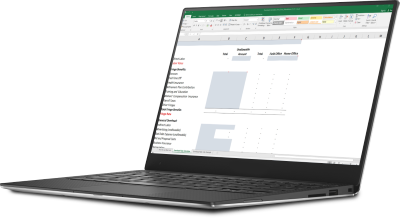You don’t want to be a statistic or one of those “Poor Bob” stories featuring the demise of your company because you were removed from government contracting opportunities.
Unfortunately, these stories are common, and the root cause is pretty consistent: lack of proper internal controls that contribute to inaccurate — and perhaps even fraudulent — overhead rate calculations and improper expense submissions.
It’s a scenario that can be readily avoided.
5 Internal Controls You Must Have
With many FAR audits under our belts, we see a pattern when it comes to missing or inadequate internal controls that get contractors into trouble. The worst case: contractors submit unsupportable or improper overhead rates or continue a pattern of claiming unallowable costs that lead to being debarred. The best case of a bad situation: the contractor loses money because of lost billing opportunities related to allowable expenses.
Here are five must-have controls that typically are missing or inadequate in contractors’ accounting policies:
-
A no exemption policy on time sheet submission, with a particular emphasis on time submissions by owners and managers
-
Processes and procedures for approvals of time sheet submissions and transfers
-
Processes and procedures for allocating and monitoring expenses to appropriate accounts
-
Processes and procedures for making and monitoring reconciliations of payroll and job costing systems
-
Ongoing staff training and communications supporting policies on proper procedures for time submission and expense claims
Solve the Problem Before Your Next FAR Audit
My recommendation is that at least six months before your audit, meet with your accounting firm and have them do a review of your internal controls to discover gaps and make recommendations for reducing your risk profile. They can give you guidance on crafting the right policies, monitoring your progress towards implementing controls and even helping train your staff members.
There’s no reason why you should put yourself and your company at risk when preventative steps, policies and procedures are readily available.
Need Help?
Known for our expertise in conducting overhead audits, our Government Contracting Group works closely with construction contractors, architects, engineers and other government contractors to help them understand how overhead rates work and how to maximize compensation. You don’t want to wait until your auditor shows up and discovers that you have an internal control problem that’s affecting your overhead rate or allowable costs. That’s a slippery slope toward debarment and/or losing money.
Contact us online or call 800.899.4623.


